
It would seem that speaking about the silence of God would be counter-intuitive and maybe even counter-productive, but being that our human natures tend most easily towards counter-productivity, I’ll give it my best shot.
The God who spoke all things into existence and the God who continues to speak to us through Divine Revelation is the very same God who subsists in absolute silence. Silence is simplicity and God is absolute simplicity due to His eternal and completely independent subsistence. Could this be why God is most clearly heard in the silence of prayer? Is it any wonder that we expend our greatest efforts at escaping silence as much as possible? To be baptized into silence is to make ourselves vulnerable to Truth, for it is in silence that we come to know God. As the very creator of our human nature, He revealed to us the invaluable role silence plays when He tells us, “Be still, and know that I am God.” The stillness of silence aids our intellects in knowledge of Him. Greater knowledge of Him should naturally lead to a corresponding change in the will. This is the essence of conversion, and this is why prayer cannot be neglected. Is it that our human nature abhors silence because of its purgative effects? It seems as though there is something in our nature that tips us off to the fact that if we welcome the silence, we must also be willing to welcome change, thus, we see the corresponding effects of the fear of silence upon a culture in fear of change. We value access to hundreds of channels on the television. In this way, we are assured that we never have to turn off the television due to previously seen programs. If we do happen to pull ourselves away from the television and get into our cars, we have the radio to break the silence. Not only do we get to listen to poor excuses for music in our cars, we also get to listen to the trash being spewed out of other people’s cars.
I mentioned the connection of prayer and silence in the above paragraph as silence is the best environment for prayer. The reason for this is that the ultimate goal of prayer must be conversion and enlightenment (not in the Eastern sense). St. John Cassian, who lived from the mid-300’s to the early 400’s, recognized this in speaking about the effect upon the human soul by God as light both perceivable and communicable through silence in prayer:
The suddenness of the light stupefies it and robs it of speech. All its senses remain withdrawn in its inmost depths or completely suspended. And it is by inarticulate groans that it tells God of its desire.
The necessity of silence for communication with God is also according to our natures as images of Him Who is Silence, for if in His eternal simplicity He is silent, then by what better means can we who are images of Him reach out to Him? It is as though the silence is more expressive of ourselves to God than all the words we manage to mount up in oral prayer. St. Paul reassures us of the efficacy of our prayer even in the silence when he writes: “For we do not know how to prayer as we ought, but the Spirit Himself intercedes for us with sighs too deep for words (Rom 8:26).”
It is an unfortunate situation that our present cultural state is one characterized by a pathological obsession with noise which should serve as symptomatic enough to make a valid diagnosis: fear of silence is a fear of God, though not in the virtuous sense. It is ultimately a fear of Truth which explains the naïve and childish acceptance of the self-contradictory philosophy of relativism that thrives today. If we can just convince ourselves that Truth is determined by our perception of it, then we no longer have to listen to anyone or anything else. Without the need or appreciation for listening, there need not be silence. And if we hate the silence, then how can we love God?
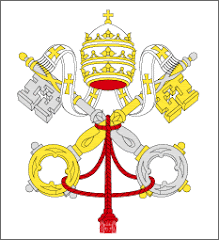
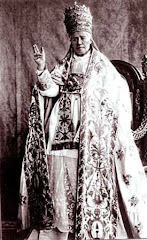
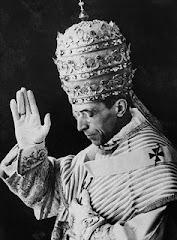

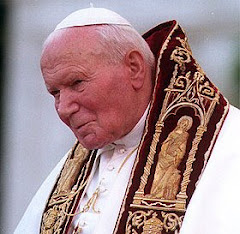
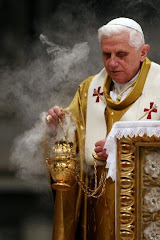













No comments:
Post a Comment